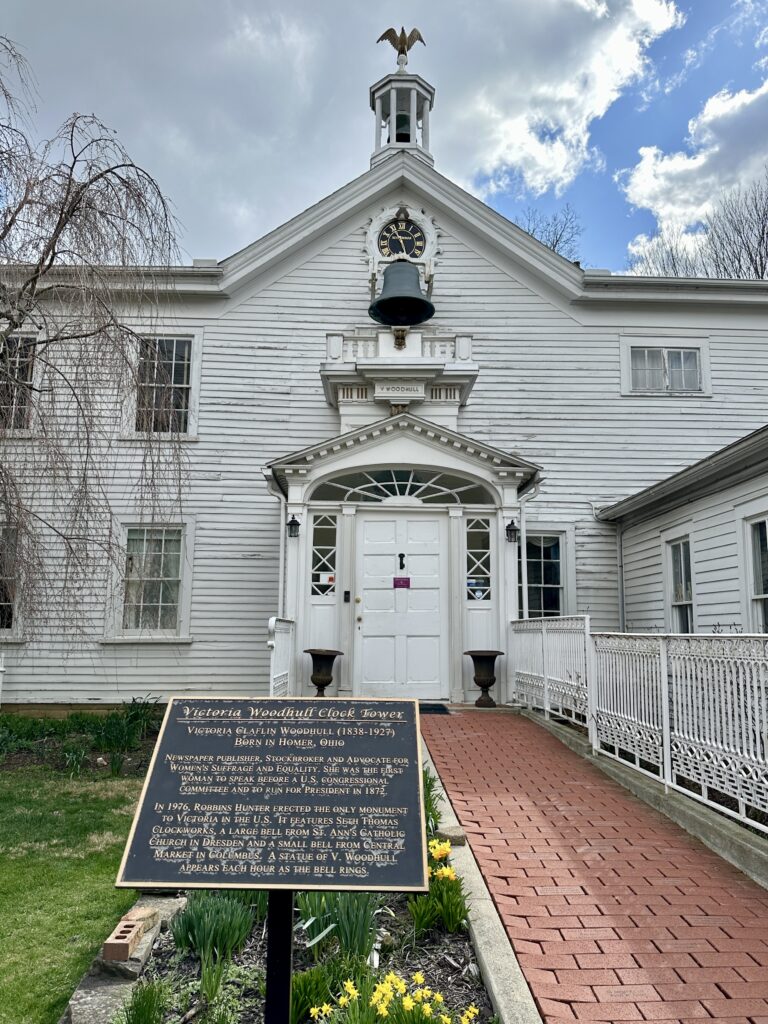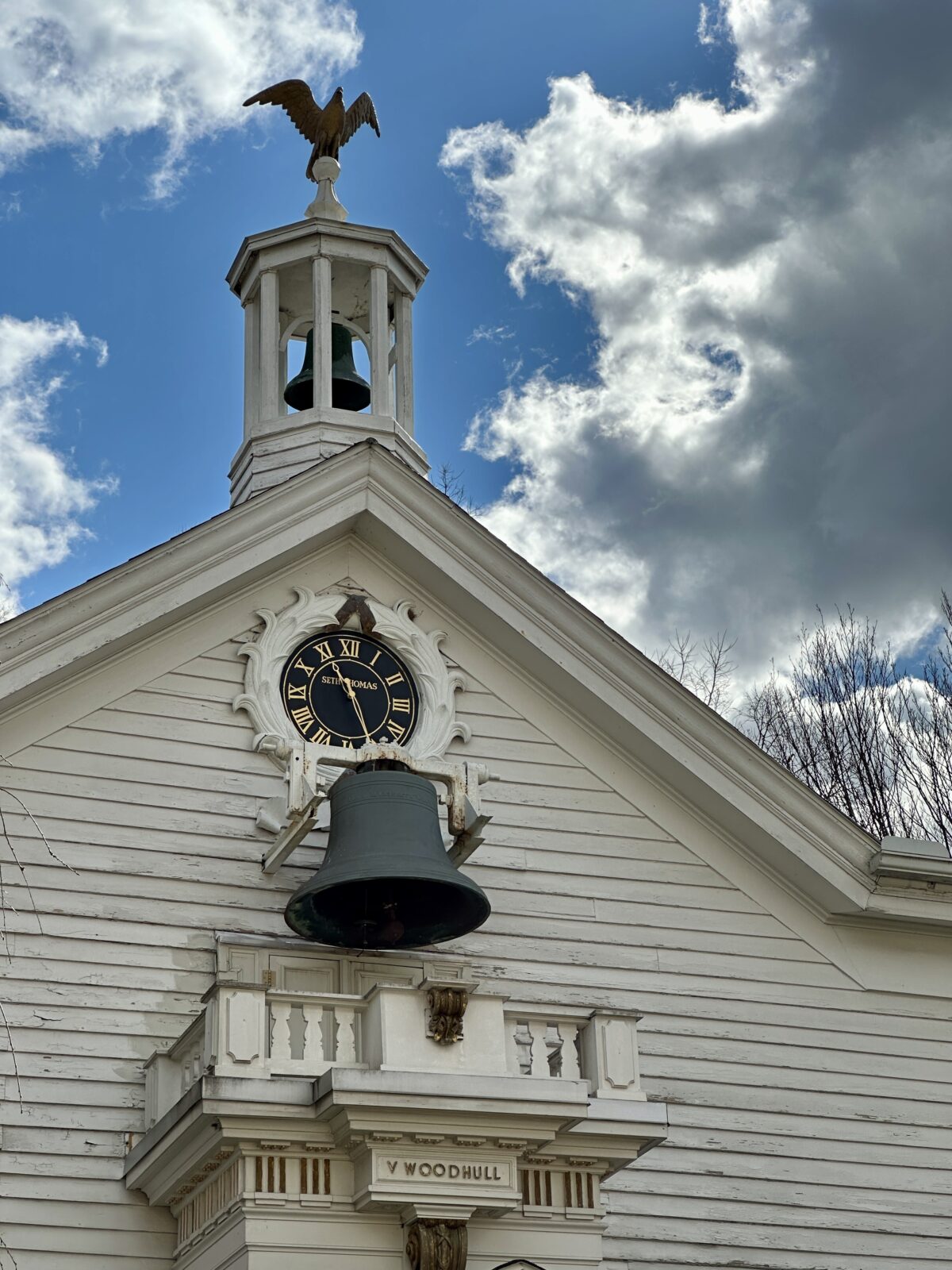Homer, Ohio — about 13 miles due north of Granville — is often the answer to a trivia question in Women’s History Month, thanks to one resident with a more-than-trivial impact.
Victoria Claflin Woodhull was born in Licking County on Sept. 23, 1838. Throughout her childhood, she likely experienced abuse before being married off when she was just 15 years old. She divorced her first husband, an alcoholic who moved her to California and then back to the Midwest, where she remarried and launched her career as a spiritualist speaker in the 1860s.
After the Civil War, Woodhull became an ardent advocate for women’s suffrage, and in 1872, she launched her United States presidential campaign — a perhaps-quixotic attempt at the office, as her name appeared on no ballots across the country and she was not technically eligible to run, due to her being under the age of 35.
Her campaign attracted widespread public notice, though it’s unclear if she officially received any votes. Even so, she was technically the first woman to run for the presidency.
The attention she received for her campaign, though, was a result of Woodhull’s other claims to fame.
In the Feb. 14, 1870 edition of the New York Times, it was announced that she and her sister, Tennessee Claflin, had become the first female brokers on the New York Stock Exchange, with a brokerage of their own off Wall Street. The duo added a periodical to their projects later that year — Woodhull & Claflin’s Weekly — where they published the first United States appearance of Karl Marx’s “Communist Manifesto.”
Their combination of successful capitalism and vehement advocacy for labor unions and socialist principles, along with regular editorials in favor of giving women the right to vote, set the stage for Woodhull’s run for the presidency. She had already testified in person before the House Judiciary Committee, reading her proposal for women’s suffrage — known as “The Woodhull Memorial” — to the gathered Congressmen, with much favorable notice at the time.
It has to be said, though, that much of her fame — or infamy —had to do with Woodhull’s association with the “free love” movement, a cause she supported in a November 1871 lecture at Steinway Hall in Manhattan.
Many of her opponents, politically, economically, socially, defined “free love” as license, as promiscuity. What’s interesting about a close reading of Woodhull’s speeches, most of which we have today, is that her primary focus was less about being free to love whomever you want whenever you want, than it was for a married woman to be free to say no. Consent and mutual willingness in intimate relations was at the heart of Woodhull’s agenda, and it appears her most vehement opponents, like Horace Greeley, knew it, and were more appalled by that argument for a woman’s right to say “no” than any appeal to sexual freedom in general.

Victoria Woodhull was a pioneer in many ways, and her controversial positions helped to relegate her to relative obscurity, other than the modest nod to “first woman to run for President of the United States.” That may well be the least of the roles she played to open up freedom and opportunity for women in this country.
Her opponents helped to drive her to Great Britain, where she married one last time, lived out her life in the English countryside, and at her request was cremated on her death in 1927 and her ashes scattered in the Atlantic, midway between her two countries.
In 1974, a Granville resident and antique dealer named Robbins Hunter, Jr. remembered Woodhull as a pioneer and trailblazer, and decided for the coming American Bicentennial that if she had no other monument, he would build one for her: a clock tower on one side of his historic home, the Avery-Downer House. It displays the simple inscription “V. Woodhull” and at the top of the hour, a woman’s figure comes out below the clock face, as a leader would come out on a balcony to the citizenry’s cheers. This animated, lively monument stands today across from the Granville Public Library, encouraging us to consider the role Victoria C. Woodhull played in American history.
Jeff Gill is a pastor, a mediator and a freelance writer in Granville, Ohio.

